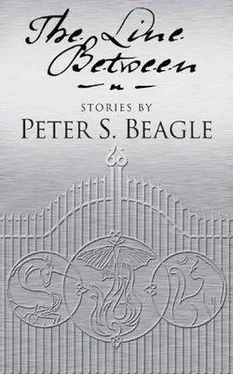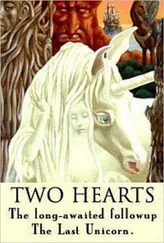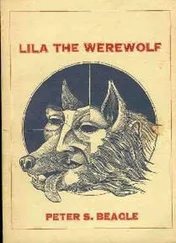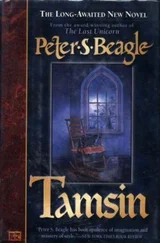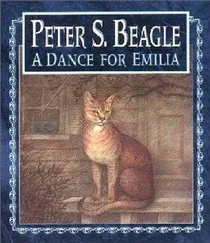Peter Beagle - The Line Between
Здесь есть возможность читать онлайн «Peter Beagle - The Line Between» весь текст электронной книги совершенно бесплатно (целиком полную версию без сокращений). В некоторых случаях можно слушать аудио, скачать через торрент в формате fb2 и присутствует краткое содержание. Жанр: Фэнтези, на английском языке. Описание произведения, (предисловие) а так же отзывы посетителей доступны на портале библиотеки ЛибКат.
- Название:The Line Between
- Автор:
- Жанр:
- Год:неизвестен
- ISBN:нет данных
- Рейтинг книги:5 / 5. Голосов: 1
-
Избранное:Добавить в избранное
- Отзывы:
-
Ваша оценка:
- 100
- 1
- 2
- 3
- 4
- 5
The Line Between: краткое содержание, описание и аннотация
Предлагаем к чтению аннотацию, описание, краткое содержание или предисловие (зависит от того, что написал сам автор книги «The Line Between»). Если вы не нашли необходимую информацию о книге — напишите в комментариях, мы постараемся отыскать её.
The Line Between — читать онлайн бесплатно полную книгу (весь текст) целиком
Ниже представлен текст книги, разбитый по страницам. Система сохранения места последней прочитанной страницы, позволяет с удобством читать онлайн бесплатно книгу «The Line Between», без необходимости каждый раз заново искать на чём Вы остановились. Поставьте закладку, и сможете в любой момент перейти на страницу, на которой закончили чтение.
Интервал:
Закладка:
The evening was warm, and there was one of those glossy, perfect half–moons that seem too brilliant for their size. We walked home the long way, so that I could show Emilia the little park where Sam had told me about her. We sat on the swings, as I'd done with Sam, and she told me then, «He lied about his age, you know. I didn't realize it until you told me you were two months younger. He'd been taking seven years off all the time I knew him. As though it would have mattered to me.»
I'd had a second margarita with dinner. I said, «He was two months and eleven days older than I am. We were both born just after three in the morning, did he ever tell you that? I was about an ounce and a half heavier.» And whoosh, I was crying. I didn't start to cry—I was crying, and I was always going to be crying. Emilia held me without a word, as I'd once held Sam when he wept just as hopelessly, just as endlessly. I have no idea how long it went on. When it stopped, we walked the rest of the way in silence, but Emilia tucked her arm through mine.
Back home, we settled in the kitchen (which is bigger and more com–fortable than my living room) with a couple of cappuccinos. The direc–tor ex–wife took the piano, but I hung on to the espresso machine. Emilia said, «I was thinking on the flight—you and I have already known each other longer than I knew Sam. We had such a short time.»
«You learned things about him I never bothered to find out in forty years. I thought we had forever.»
Emilia was silent for a while, sipping her coffee. Then she said, very softly, not looking at me, «You see, I never thought that. Some way, I always understood that there wasn't going to be a happy ending for us. I never said it to myself, but I knew.» She did look straight at me then, her eyes clear and unmisted, but her mouth too straight, too determinedly under control. «I think he did, too.»
I couldn't think of an answer to that. We chatted a little while longer, and then Emilia went to bed. I stayed up late, reading Heartbreak House one more time—no one's ever likely to ask me to play Captain Shotover, but the readiness is all—had one last futile look–around for Millamant, and turned in myself. I slept deeply and contentedly for what seemed like a good fifteen minutes before Emilia shook me out of one of the rare dreams where I know my lines, whispering frantically, «Jake—Jake come and see, hurry, you have to see! Jake, hurry, it's her!»
The half–moon was shining so brightly on the kitchen table that I could see the little sticky rings where our coffee cups had been. I remem–ber that, just as I remember the shuddery hum of the refrigerator and the bloop of the leaky faucet, and a faint scratching sound that I couldn't place right away. Just as I remember Millamant dancing.
It's a large table, older than I am, and it lurches if you lean on it, let alone dance. I don't know how Millamant even climbed up, arthritic back leg and all, but there she floated, there she spun, tumbling this way, sail–ing that, one minute a kitten, the next a kite; moving so lightly, and with such precision, that the table never rocked once, but seemed to be the one moving impossibly fast, while Millamant drifted over it as slowly as she chose, hanging in the air for exactly as long as she chose. She was so old that her back claws no longer retracted entirely—that was the scratch–ing noise—but she danced the way human beings have always dreamed of dancing, and never have, not the best of them. No one has ever danced like Millamant.
Neither of us could look away, but Emilia leaned close and whispered, «I've seen her three times. I couldn't talk about it on the phone.» Her face was absolutely without color.
Millamant stopped so suddenly that both Emilia and I leaned toward her, as though it had been the planet that halted. Millamant dropped down onto all fours, paced to the edge of the table and stood looking at us out of once–golden eyes gone almost tea–brown with age. She was breath–ing rapidly, and trembling all over. She said, «Emilia. Jake.»
How can I say what it was like? To hear a cat speak—to hear a cat speak our names—to hear a cat speak them in a voice that was unmis–takably Sam's voice, and yet not Sam's, not a voice at all. Her mouth remained slightly open, but her jaws did not move: the words were com–ing through her, not out of her, without inflection, without any sort of cadence, without any trace of a homemade English accent. Millamant said, «Jake. Clean your glasses.»
I wear glasses, except onstage, and the lenses are always messier than I ever notice. It used to drive Sam crazy. I took them off. Millamant—or what was using Millamant—said, «I love you, Emilia.»
Beside me, Emilia's breath simply stopped. I didn't dare look at her. I had all I could do to babble idiotically, «Sam? Sam? Where have you been? Sam, are you really in there?»
At that Millamant actually seemed to raise an eyebrow, which was unlikely, since cats don't have eyebrows. She—Sam—it said quite clearly. «You want I should wave?» And she did raise a front paw to gesture in my direction. Her ears were flicking and crumpling strangely, as though someone who didn't know how a cat's ears work were trying to lay them back. «As to where I've been — " the toneless march of syllables faltered a little " — it comes and goes. Talk to me.»
Emilia's face was still so pale that the color on her cheekbones stood out like tribal scars. I don't know what I looked like, but I couldn't make a sound. Emilia took a step forward, her hands out, but Millamant imme–diately backed away. «Talk to me. Please, talk to me. Tell me why we're all here, tell me anything. Please.»
So we sat in the kitchen, Emilia and I, talking to an old cat as we would have talked to our dear lost friend, solemnly telling her our com–monplace news of work and family, of small travels and travails, of his parents in Fort Lauderdale, of how it had been for us in the last two years. Our voices stumbled over each other, often crumbling into tears of still–untrusted joy, then immediately skidding off into broken giggles to hear ourselves earnestly assuring Millamant, «It's been a miserable cou–ple of theater seasons—absolutely nothing you'd have liked.» Millamant looked from one to the other of us, her eyes fiercely attentive, sometimes nodding like a marionette. Emilia clutched my hand painfully tightly, but she was smiling. I have never seen a smile like that one of Emilia's ever again.
She was saying, «And Jake and I have been writing and writing to each other, talking on the phone, telling each other everything we remember—things we didn't know we remembered. Things you maybe wouldn't remember. Sam, we missed you so. I missed you.» When she reached out again, Millamant avoided her touch for a moment; then suddenly yielded and let herself rest between Emilia's hands. The arid, rasping voice said, «Behind the ears. Finally, a body I can dance in, but I can't figure out about scratching.»
Nobody said anything for a while. Emilia was totally involved in caress–ing Millamant, and I was feeling more and more like the most flagrant voyeur. I didn't have to look at Emilia's face, or listen to Millamant's purr–ing; merely to watch those yearning hands at work in the thin, patchy fur was to spy on an altogether private matter. I make jokes when I'm edgy. I said to Emilia, «Be careful—he could be a dybbuk. It'd be just like him.» Emilia, not knowing the Yiddish word, looked puzzled; but Millamant let out a brief, contemptuous yowl, a feline equivalent of Sam's old Oh, good night! snort of disdain. «Of course, I'm not a bloody dybbuk!
Don't you read Singer? A dybbuks a wandering soul, demons chasing it all around the universe—it needs a body, a place to hide. Not me—nobody's chasing me.» The voice hesitated slightly for a second time. «Except maybe you two.»
Читать дальшеИнтервал:
Закладка:
Похожие книги на «The Line Between»
Представляем Вашему вниманию похожие книги на «The Line Between» списком для выбора. Мы отобрали схожую по названию и смыслу литературу в надежде предоставить читателям больше вариантов отыскать новые, интересные, ещё непрочитанные произведения.
Обсуждение, отзывы о книге «The Line Between» и просто собственные мнения читателей. Оставьте ваши комментарии, напишите, что Вы думаете о произведении, его смысле или главных героях. Укажите что конкретно понравилось, а что нет, и почему Вы так считаете.
